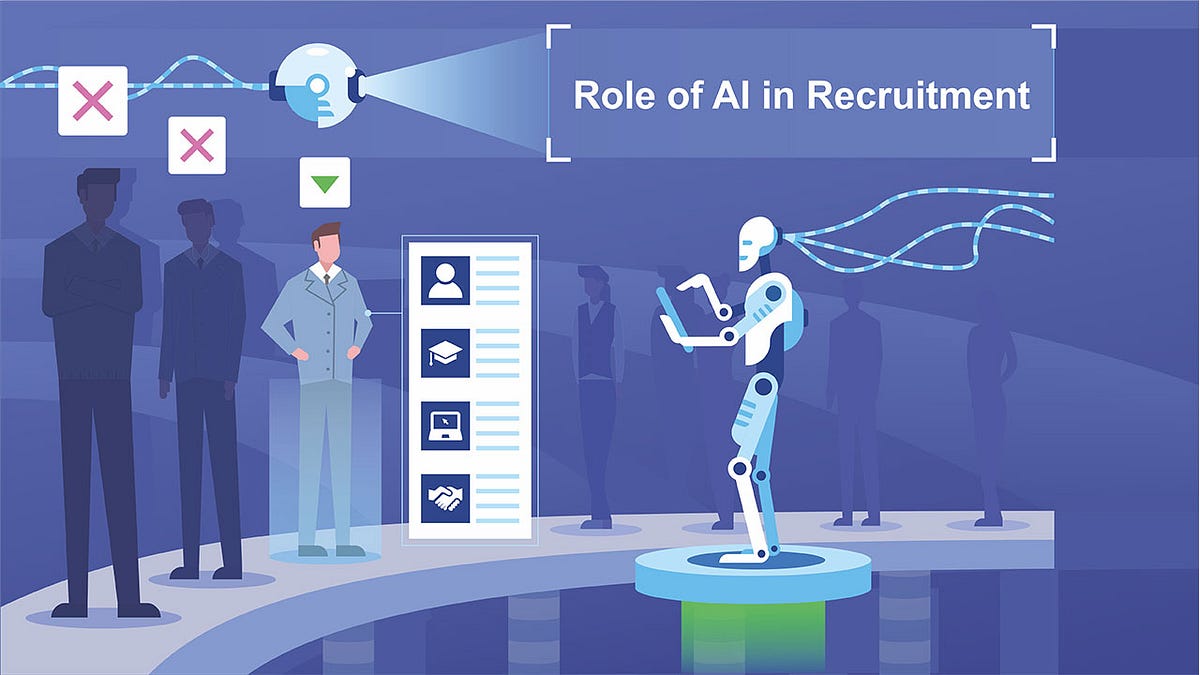The integration of artificial intelligence (AI) in human resources (HR) is transforming how businesses manage their workforce. As we enter 2025, AI’s role in streamlining HR processes is more prominent than ever. From recruitment and onboarding to performance management and employee engagement, AI-powered tools are helping companies save time, reduce costs, and improve decision-making.
This shift is particularly crucial for businesses looking to stay competitive and agile in a rapidly changing environment. Whether you’re running a small business or a large corporation, leveraging AI in HR can lead to significant operational improvements. This article explores the various ways AI is streamlining HR processes, the benefits it offers, and the steps companies can take to implement these solutions effectively.
The Role of AI in Recruitment
Recruitment is one of the most resource-intensive aspects of HR. Traditional hiring processes often involve sorting through countless resumes and conducting multiple interviews, which can be time-consuming and prone to bias. AI is revolutionizing this process by automating repetitive tasks and providing data-driven insights.
AI-powered applicant tracking systems (ATS) can scan resumes for relevant keywords, qualifications, and experiences, narrowing down the candidate pool quickly and efficiently. These systems use natural language processing (NLP) to analyze resumes, ensuring that only the most qualified candidates move forward in the hiring process. Additionally, AI can assist in crafting job descriptions that attract a diverse range of applicants, promoting inclusivity in hiring.
Businesses aiming to enhance their recruitment strategies can explore AI in Business Operations to learn how automation tools can improve hiring efficiency.
Enhancing Employee Onboarding
Employee onboarding is another critical area where AI is making a significant impact. A streamlined onboarding process sets the tone for an employee’s experience with the company. AI tools can create personalized onboarding plans, automate paperwork, and provide instant answers to common questions.
For example, AI-driven chatbots can guide new hires through company policies, benefits packages, and training schedules. These chatbots are available 24/7, ensuring that employees receive support whenever they need it. By automating these tasks, HR teams can focus on building relationships and fostering a positive company culture. Businesses can learn more about integrating digital tools into their processes by visiting Digital Services.

Optimizing Performance Management
Performance management is a cornerstone of effective HR practices. Traditionally, this process relies heavily on annual reviews, which can be subjective and fail to capture real-time performance insights. AI is changing the game by enabling continuous performance monitoring and feedback.
AI-driven performance management systems analyze employee productivity, engagement, and other metrics to provide actionable insights. These tools can identify top performers, highlight areas for improvement, and even predict potential challenges. Managers can use this data to create personalized development plans, ensuring that employees reach their full potential.
For startups and growing businesses looking to implement AI-driven HR solutions, exploring Startup Growth Strategies can provide valuable insights.
Improving Employee Engagement
Employee engagement is critical for retaining talent and maintaining a motivated workforce. AI tools are helping HR teams understand what drives employee satisfaction and identify potential issues before they escalate.
Sentiment analysis tools, for instance, can analyze employee feedback from surveys, emails, and chats to gauge morale and identify trends. Predictive analytics can also be used to anticipate employee turnover, enabling HR teams to take proactive measures to retain talent.
For businesses focused on sustainability and long-term growth, integrating AI into employee engagement strategies aligns with the principles of Sustainable Businesses.
Simplifying Administrative Tasks
Administrative tasks such as payroll processing, benefits management, and compliance tracking can be time-consuming for HR teams. AI-powered solutions are automating these tasks, reducing the risk of errors and freeing up HR professionals to focus on strategic initiatives.
For example, AI-driven payroll systems can calculate wages, track hours, and ensure compliance with tax regulations. Similarly, AI tools can automate benefits enrollment and provide employees with personalized recommendations based on their needs.
Small businesses looking to adopt AI for administrative tasks can benefit from exploring Small Business Ideas to find cost-effective solutions.
Data-Driven Decision Making
One of the most significant advantages of using AI in HR is the ability to make data-driven decisions. AI tools provide HR teams with real-time insights into workforce trends, helping them identify opportunities for improvement and make informed decisions.
For instance, predictive analytics can forecast workforce needs, allowing companies to plan for future hiring or identify skill gaps. These insights can also inform diversity and inclusion initiatives, ensuring that businesses create equitable workplaces.
To stay updated on the latest AI-driven trends, visit Business Trends and explore how technology is shaping the future of work.
Overcoming Challenges in AI Implementation
While the benefits of AI in HR are undeniable, implementing these solutions comes with its own set of challenges.
Data Privacy and Security
AI systems rely on large volumes of employee data, making privacy and security a top concern. Businesses must ensure that their AI tools comply with data protection regulations and have robust security measures in place.
Resistance to Change
Introducing AI tools may be met with resistance from employees who fear job displacement or feel overwhelmed by new technology. HR teams must prioritize clear communication and provide training to help employees adapt to AI-driven processes.
High Initial Costs
The upfront investment required to implement AI solutions can be a barrier for smaller businesses. However, the long-term cost savings and efficiency gains often outweigh the initial expenses. For businesses exploring cost-effective AI solutions, Online Business offers resources to get started.
The Future of AI in HR
As AI technology continues to evolve, its applications in HR will expand even further. Here are some trends to watch for in 2025:
Personalized Learning and Development
AI will play a crucial role in creating personalized learning paths for employees, ensuring that they acquire the skills needed to excel in their roles. These tools will analyze individual strengths and weaknesses to recommend tailored training programs.
AI-Driven Workforce Planning
AI will enable businesses to forecast workforce needs with greater accuracy, helping them plan for future hiring, training, and resource allocation.
Enhanced Diversity and Inclusion
AI tools will help businesses identify and eliminate biases in hiring and performance evaluations, promoting more diverse and inclusive workplaces.
For insights into how AI is shaping various industries, explore AI and Automation in Industry and Tech-Driven Trends.
Conclusion
AI is transforming HR processes by automating repetitive tasks, enhancing decision-making, and improving employee experiences. As businesses adopt these tools in 2025, they can expect to see significant improvements in efficiency, cost savings, and workforce satisfaction.
By embracing AI, companies can stay competitive, attract top talent, and create workplaces that thrive in a digital-first world. To learn more about leveraging AI for business success, visit Blog and explore Digital Marketing Trends.

